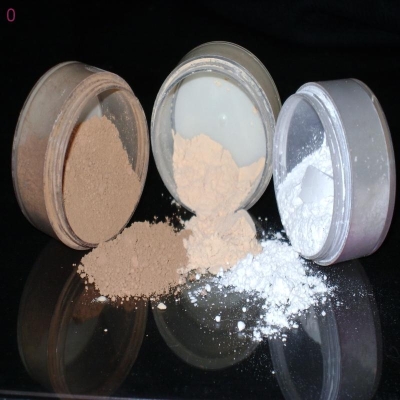Salt stimulates fat intake . . . foodaily
-
Last Update: 2021-02-16
-
Source: Internet
-
Author: User
Search more information of high quality chemicals, good prices and reliable suppliers, visit
www.echemi.com
Recently, Australian researchers found that salt can attract people who usually like to eat low-oil, low-fat foods to eat fatty foods, and even increase the amount of food they eat.Previous studies have found a link between salt preferences and preference for greasy foods and an unbridled diet, overweight, and high energy intake, even more so than between sweets and fatty foods and overweight. However, the results of the study only prove that the addition of salt to a meal increases energy intake, and that needles are used in people who are sensitive to a high-fat diet, as well as those who tend to eat low-fat foods.The Australian team gave participants four different food and beverage structures: low fat (
0.02%
) and low salt (
0.06%
), low fat and high salt (
0.5%
), high fat (
34%
) and high fat and salt.participants were told they could eat until they were fully fed, and the researchers recorded a rate of eating, the level of pleasure of the subjects, and subjective ratings of hunger and satiety.found that salt increased food and energy intake by
11%
, independent of fat content."
add salt, not fat, to increase pleasure, which explains why salt increases the amount of food you eat. High-intake and high-salt diets are accompanied by a decline in the expectations of a connected diet and hunger, which is not affected by fat content.
”Participants with lower fat taste thresholds ate less on a high-fat diet, but only under low-salt conditions. When given both high fat and high salt, the participants increased their intake.
"
the effect of salt on promoting fat consumption, overturning previous assertions that fat regulates fat intake in fat-sensitive populations.
"
team leader
Russell Keast
his team.in today's food environment, snacks are everywhere, so the potential impact of snack salt is very important."
excessive intake of energy due to fat intake does not necessarily require salt participation. In fact, however, foods high in fat are often accompanied by high salt and sugar, and do not taste like high-fat foods. In this case, salt does promote excessive intake of dietary fat, simply put, the reason is that high-fat foods have no other explicit taste, and are not ordinary foods, generally not very acceptable to consumers.
”The effects of fat on food flavor are complex, increasing fat content does not always increase food intake or consumer pleasure, which requires the addition of other substances, such as salt and sugar.detailsthe participants were aged
18-54
years, and the
BMI
value ranged from
17.8-34.3
. Test the participants' fat sensory thresholds with lysic acid. the same breakfast as the participants, and then the lunch was divided into four groups, consisting of
56%
macaroni and
44%
sauce. Sauce composition: low fat (
0.02%
) and low salt (
0.06
%
); Participants were told they could eat until they were fully fed, and the researchers recorded eating rates, the level of pleasure of the subjects, and subjective ratings of hunger and satiety. low-fat pasta sauce contains
0.6
grams of fat per
100
grams, and high-fat pasta sauce contains
15.5
grams of fat per
100
grams, resulting in an increase in energy intake by
60%
. salt levels played a leading role in post-eating pleasure, with participants saying they were more eager to eat foods high in salt than in foods that were low in salt. However, when the results of high-fat foods were compared with 2000 results of low-fat foods, no significant results were obtained. The source of this
is
food, if reproduced please indicate the source, violators must be investigated.
This article is an English version of an article which is originally in the Chinese language on echemi.com and is provided for information purposes only.
This website makes no representation or warranty of any kind, either expressed or implied, as to the accuracy, completeness ownership or reliability of
the article or any translations thereof. If you have any concerns or complaints relating to the article, please send an email, providing a detailed
description of the concern or complaint, to
service@echemi.com. A staff member will contact you within 5 working days. Once verified, infringing content
will be removed immediately.







